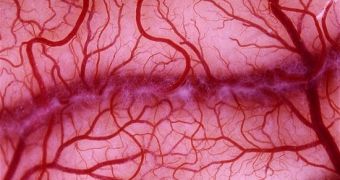At some point in the future, it might happen that, rather than resorting to transplant surgery, doctors will be able to treat people whose organs are either damaged or diseased with the help of blood vessel cells injections.
According to two new papers published in the Stem Cell Journal and the journal Developmental Cell, said type of cells have the uncanny ability to boost a given organ's ability to heal itself.
Researchers further detail that the blood vessel cells, otherwise known as endothelial cells, foster regeneration and repair in organ tissues by releasing various molecules, EurekAlert reports.
Contrary to previous assumptions, it appears that both the blood vessel cells and the molecules they produce are organ-specific, meaning that their structure and function are different for each organ, the same source tells us.
Thus, they are equipped to deal with the different metabolic demands of each organ.
As Dr. Michael Ginsberg puts it, “Endothelial cells have learned to behave differently in each organ and adjust to the needs of those organs.”
Investigations have shown that, in the case of diseased or damaged organs, the blood vessels that are already present at the site are unable to help fix the problem due to the fact that, more often than not, they themselves are harmed.
By transplanting endothelial cells that are perfectly healthy in these organs, it could happen that the damaged tissues will be repaired and the organs will resume their functions.
“Our work suggests that that an infusion of engineered endothelial cells could engraft into injured tissue and acquire the capacity to repair the organ,” researcher Shahin Rafii with the Howard Hughes Medical Institute in the US says.
“These studies – along with the first molecular atlas of organ-specific blood vessel cells reported in the Developmental Cell paper – will open up a whole new chapter in translational vascular medicine and will have major therapeutic application,” he goes on to argue.

 14 DAY TRIAL //
14 DAY TRIAL //